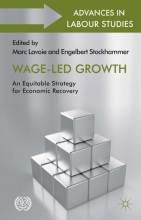Inequality is not inevitable

When more than 2,500 of the world’s business and political leaders met in Davos in January, many saw the growing gap between rich and poor as the biggest threat to the global economy.
Over the last 20 years, income distribution has shifted in favour of the rich, while the relative income position of the poor and of much of the middle class was deteriorating in most countries, including global economic powers such as the United States, Germany and China.
According to the new ILO book, “Wage-led growth: An equitable strategy for economic recovery”, this trend is only partially associated with technological change.
The main reason workers are getting a smaller share of national income are policies over the last 30 years that have distributed income in favour of capital and against labour. What is called the labour income share began to fall around the 1980s in many advanced economies, including the United States and Japan, and a similar trend has been observed in recent years in emerging countries, notably China.
In addition, this smaller share of labour income was distributed more and more unequally between workers – with striking results.
The new book portrays a rather depressing but familiar picture. For the advanced countries, the labour income share on average has decreased by about 10 percentage points from the peak level of the late 1970s. Yet this significant reduction hides even wider income inequality, as the top 1 per cent of earners are included in the labour income share. If the top 1 per cent were not taken into account, the share the ordinary workers get would fall by another 2 to 6 percentage points.
More information on the ILO website here.

